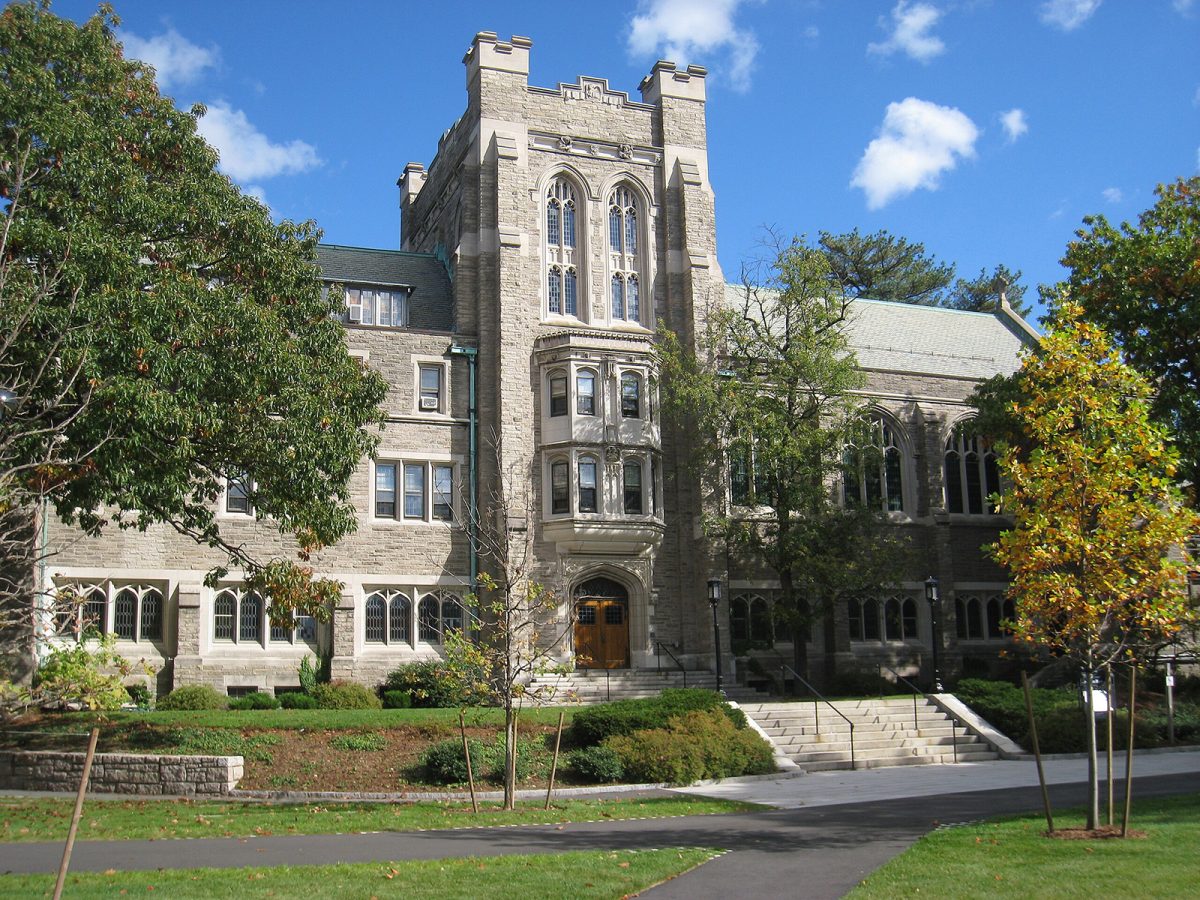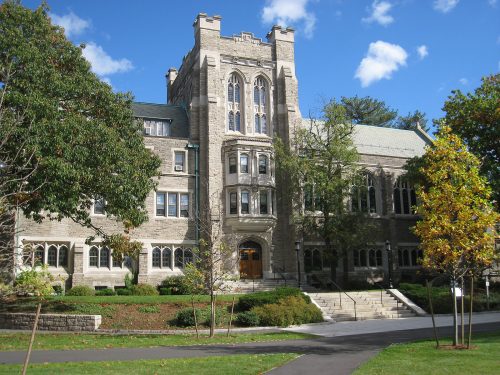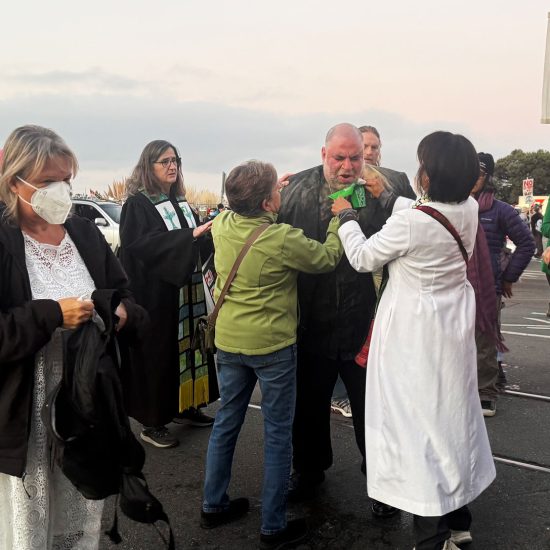
(RNS) — Harvard Divinity School announced last week it was pausing its Religion, Conflict and Peace Initiative, a program that focused on Israel-Palestine as a case study.
On Wednesday (April 2), it cut the last remaining position in the initiative.
Hilary Rantisi, the associate director of the program, said she was told her position will not be renewed. She is also the sole Palestinian American staff member at the divinity school. Her last day is at the end of June. She did not comment further.

Swartz Hall, formerly Andover Hall, home to the Harvard Divinity School at Harvard University in Cambridge, Mass. (Photo courtesy of Wikimedia/Creative Commons)
The news follows a cascading series of recent events that included the departure of two leaders of Harvard University’s Center for Middle Eastern Studies and the suspension of the Harvard School of Public Health’s partnership with Birzeit University in the West Bank.
Harvard is facing a Trump administration threat to cut $9 billion in contracts and grants for failing to protect Jewish students from antisemitism and promoting “divisive ideologies over free inquiry.” The Trump administration has already indicated it might pull hundreds of millions in federal funds from Columbia University and the University of Pennsylvania for failing to address accusations of antisemitism on campus.
The divinity school declined to comment to RNS beyond the statement on its website, which says it is pausing the initiative “in order to rethink its focus and reimagine its future.” The change will be implemented in the next academic year.
The announcement posted last week also cited “long- and short-term budgetary issues” related to the initiative’s loss of financial support and said the divinity school will face a reduced budget next fiscal year.
In the wake of the Israel-Hamas war, the Religion, Conflict and Peace Initiative had come under intense criticism, mostly from Jewish groups arguing it was biased toward the Palestinian narrative and against Israel. The program’s chief offering, a class called “Narratives of Displacement and Belonging in Israel-Palestine,” included a two-week trip to Israel and the occupied West Bank. It was canceled this past semester.
Then in January, Diane L. Moore, the associate dean of the Religion and Public Life program at Harvard and a key partner of the Religion, Conflict and Peace Initiative who helped develop the class, departed one semester before she was set to retire. And in February, the assistant dean for the Religion and Public Life program, Hussein Rashid, who is Muslim, announced he was resigning at the end of the spring semester, saying in a letter to students that anti-Muslim bias was rampant at Harvard.
Rantisi, who is Christian, was born in Jerusalem and grew up in the West Bank city of Ramallah. She earned a master’s degree in Middle East studies from the University of Chicago. She has worked at Harvard since 2001 and was the director of the Middle East Initiative at Harvard’s Kennedy School of Government before the program came under the divinity school’s purview.
“As an alumna of the school, I’m just enraged,” said Atalia Omer, a professor of religion, conflict, and peace studies at the University of Notre Dame who co-taught the Harvard Divinity School class. “As someone who was a part of building the curriculum, I’m devastated, and very, very sad. This was the one place at Harvard broadly where we had a very robust programming on understanding Palestine-Israel as a case study.”
Omer is Jewish and a native of Israel. She, along with Rantisi and Moore, developed the class, which was first offered in a different format in 2019, and then offered annually to look deeply at the sometimes conflicting narratives of Jews, Palestinians — both Muslims and Christians — living in the region.
In addition to the class, the Religion, Conflict, and Peace Initiative invited visiting scholars to teach at the divinity school. It offered internship opportunities for students, a fellows program, reading groups for Harvard faculty and other public events on campus.
Harvard came to public attention among several U.S. schools with active pro-Palestinian student encampments last year protesting the war in Gaza. Its former president, Claudine Gay, resigned after a congressional hearing where she was unable to unequivocally say whether calls on campus for the genocide of Jews would violate the school’s conduct policy.
Last month, Harvard settled two lawsuits with Jewish groups that claimed the school had not taken appropriate steps to keep its campus from becoming a hostile environment for Jewish and Israeli students in the aftermath of the Oct. 7, 2023, Hamas attack on Israel and the ensuing war.
At least four students in the divinity school were interviewed by a committee collecting information about the Religion, Conflict, and Peace Initiative. Later that day, the divinity school announced the program was being paused.
Sarah Kahn, a master of theological studies student at the divinity school who is Muslim, said she was shocked. She had listed the program specifically in her application to the school.
“The program was instrumental to my experience at Harvard Divinity School,” said Kahn, who had attended the initiative’s events. “It was a program that really valued this kind of anthropological and intimate knowledge of ethnic conflict and religious conflict, and was committed to resolving them on the terms of the people most impacted.”





